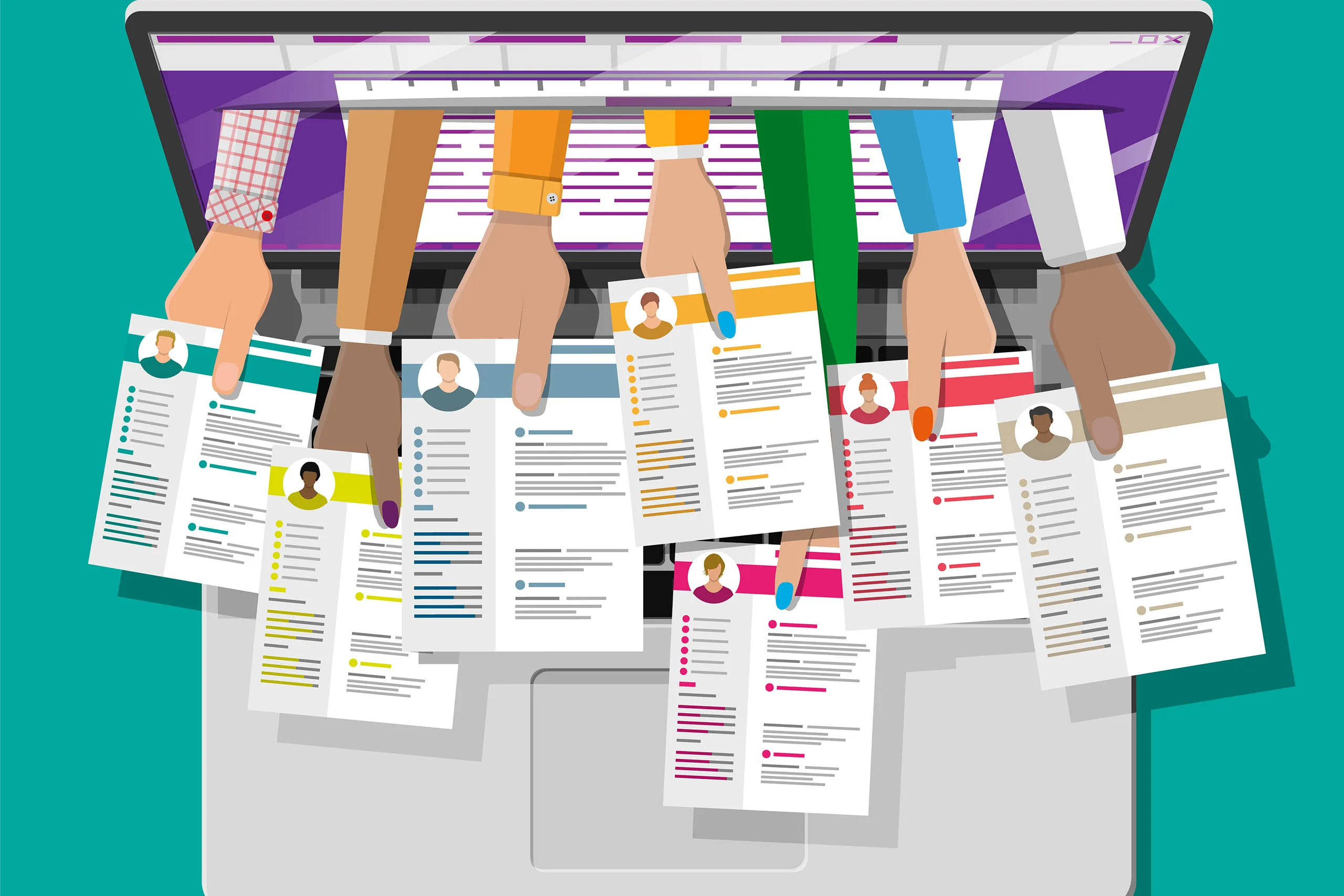Be the first to know
Sign up for a weekly dose of tech hiring news and updates.
When it comes to digital transformation in recruitment, businesses small and large are rapidly adopting new technologies like Applicant Tracking Systems or CRMs to build better relationships with their candidates. But what are the D&I benefits for businesses jumping on the digital transformation bandwagon?
This shift from traditional to digital methods has become a must for many companies, especially during the pandemic. It’s estimated that between 2020 and 2024, the direct investments into digital transformation are projected to reach a total of $7.8 trillion.
Digital transformation within your recruitment process specifically can lead to faster hiring processes and an improved candidate experience. Here, we’ll answer why having a diversity and inclusion strategy within your digital transformation plans can help find highly skilled candidates from underrepresented groups that are often overlooked – giving your hiring teams an even stronger competitive advantage.
Widening the Candidate Pool to Improve Diversity and Inclusion
If your hiring teams aim to drive innovation, improve company culture, and rectify the skills shortage, hiring underrepresented groups can help businesses build tech that’s insightful and inclusive of all potential users.
To achieve more diverse hires within your recruitment pipeline, widening the talent pool through remote hiring can lead to attracting and relationship building with applicants from around the world that might not have had the opportunity to work within your company previously.
A remote recruitment process tied to D&I initiatives helps you hire candidates from around the world, regardless of age, ethnicity, gender, physical abilities, and sexual orientation. By widening the talent pool, you can also hire candidates skilled in using different technologies and coding languages, filling in any skill gaps in your engineering teams.

Closing the Skills Gap in Tech Teams
In 2020, the pandemic widened the skills gap as the need for remote work increased, and companies were faced with the challenge of shifting all processes to a virtual environment. Therefore, developer skills like coding and programming are even more imperative than before to aid in the digital transformation of these companies.
According to Stack Overflow, the most popular programming and coding languages are:
- JavaScript (69.7%)
- HTML/CSS (62.4%)
- SQL (56.9%)
- Python (41.6%)
- Java (38.4%)
Comparing that to the number of engineering job postings that are the most in-demand within the United States, SQL (116,765), Java (82,335), and Python (80,220) take the top spots.
The challenge that many companies are facing is finding locally skilled engineers to fill those positions post-pandemic. But according to SkillValue, the top five countries with the best software engineers are Slovakia, Mexico, Poland, Hungary, and Ukraine.
That’s why it’s important to consider widening your candidate pool to other countries and implementing D&I processes to hire candidates from varying backgrounds to fill the skills shortage gap. To do this, you’ll need to identify which skills are lacking within your teams and the vital open positions that need to be filled.
Secondly, it’s important to identify future technological changes and how they may impact the performance of your teams. If there are any upcoming technologies like languages or frameworks, hiring candidates skilled in those technologies ahead of the curve is important.
Read more like this: Fast Ways to Promote Diversity & Inclusion In Your Remote Tech Hiring.
Assessing Skills In the Remote Hiring Process
As a team leader, you already know there’s so much more to your candidates than the bullet points on the resume or whatever their references might say. Measuring a candidate’s skill set requires digging deeper into how they will perform within their teams and if they are a good fit for the company culture.
Hiring based on skills should be a vital part of your interview process – especially if you want a DE&I-friendly digital transformation strategy. By focusing on an engineer’s talent, as opposed to their background, you’re able to remove first-impression and unconscious bias.
After the initial remote screening, inviting the candidate to partake in a personalized coding assessment further removes any potential bias as you’re able to gauge their ability to perform coding tasks and solve real problems based on your tech stack. Introducing coding assessments also comes with many other benefits, such as reducing the time to hire and hiring at scale as tens or even hundreds of candidates can participate in coding assessments.
Even better? With a tech hiring solution like CodeCheck or CodeLive, you can get better transparency into every phase of your remote hiring process with relevant analytics highlighting a candidate’s technical skills, interview results, and a timeline of their experience into one space.
The Benefits of Diversity and Inclusion Within Digital Transformation
It’s clear that hiring technologies are evolving fast, and rapid digital transformation is essential to scaling your company and your recruiting efforts. But don’t worry – infusing digital transformation into your remote hiring processes doesn’t need to be accomplished overnight!
Once you’ve taken into account your tech stack and DE&I goals, you can start to build a diversity and inclusion strategy that’s more than just an ethical responsibility. You can build repeatable and scalable processes that fills any skills gaps in your teams, maintain a healthy company culture, and attract (and retain) top tech candidates from around the world.
Want more insights on building diverse engineering teams & tech hiring trends? Sign up for our newsletter & stay informed.
